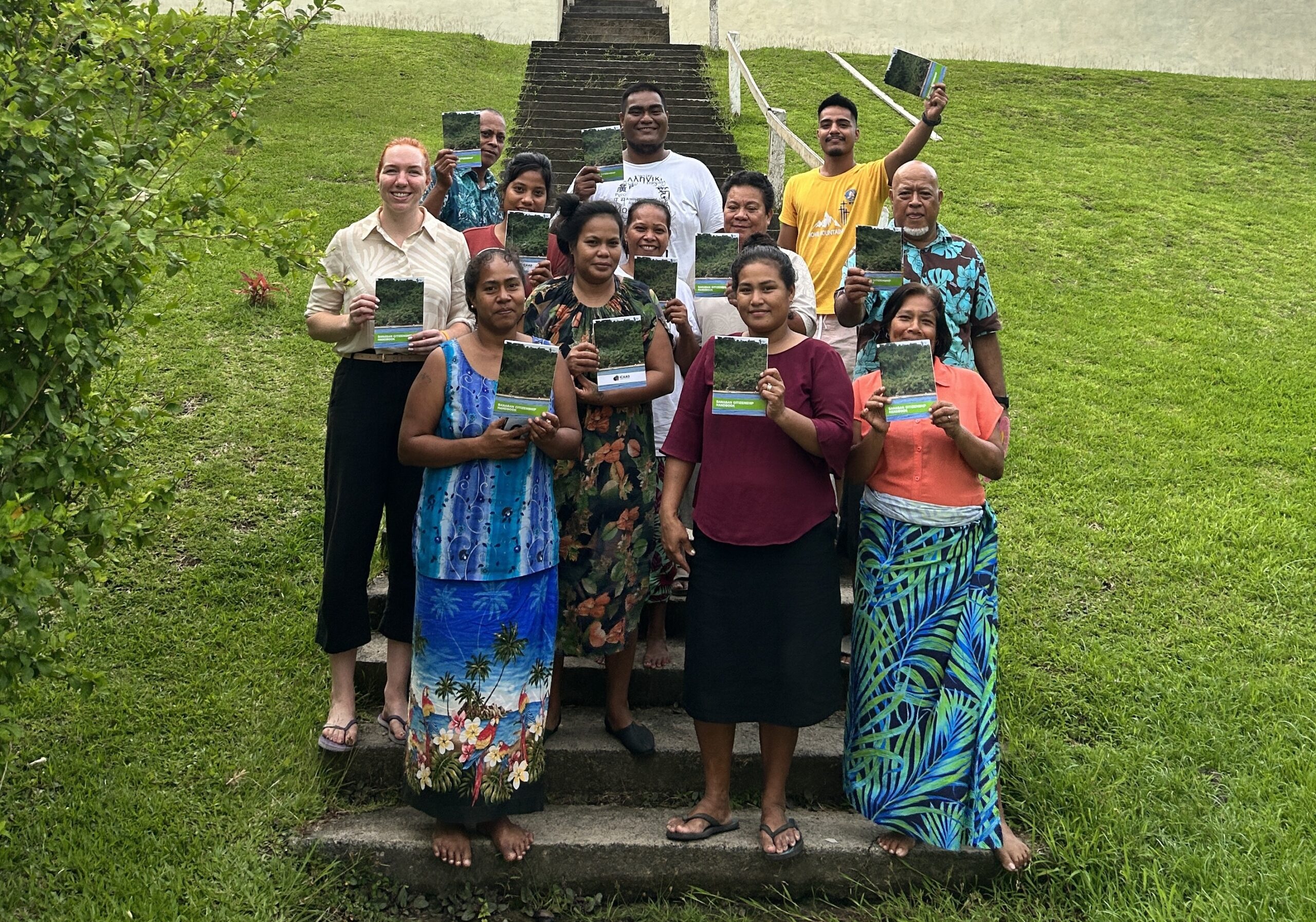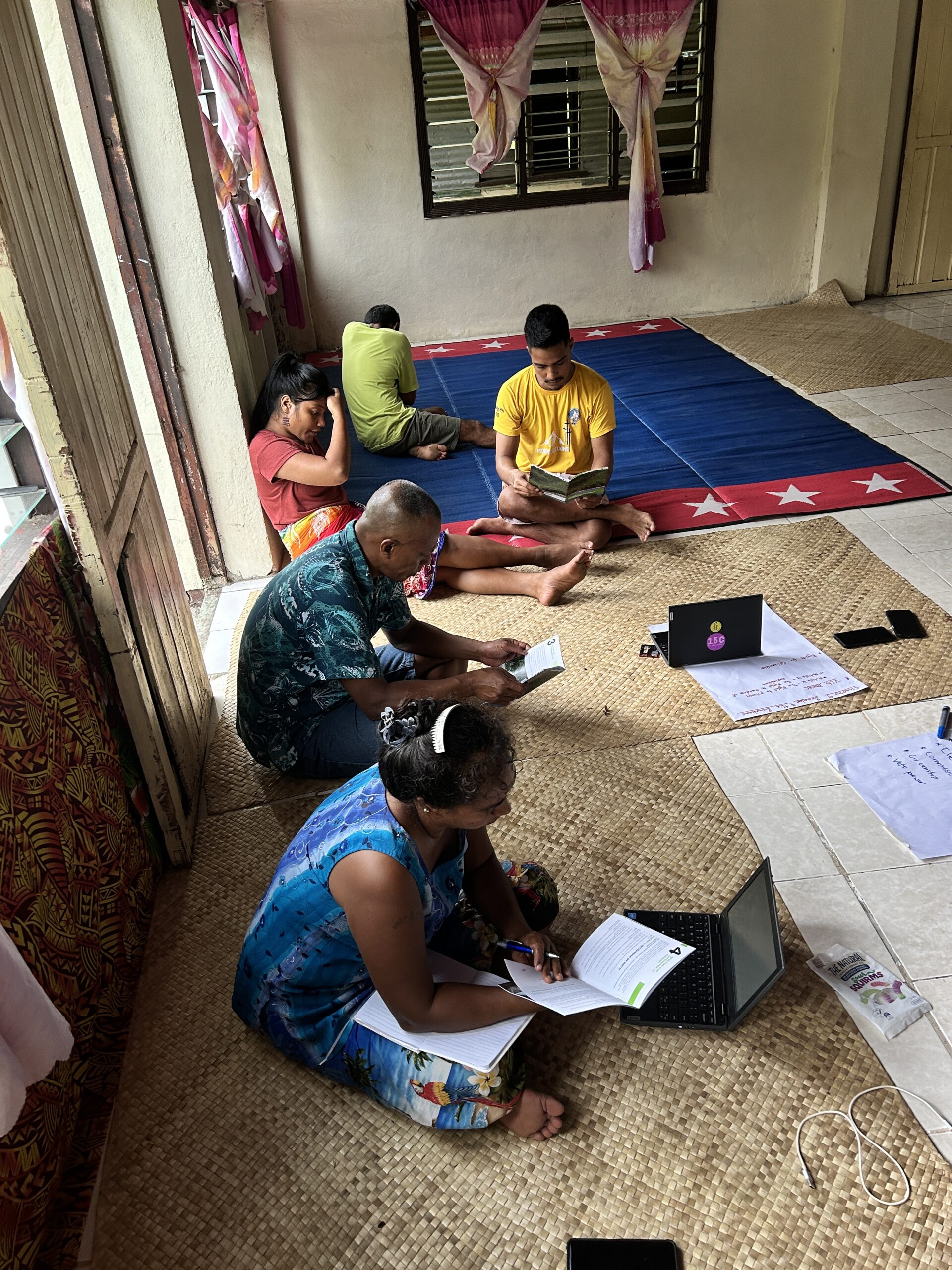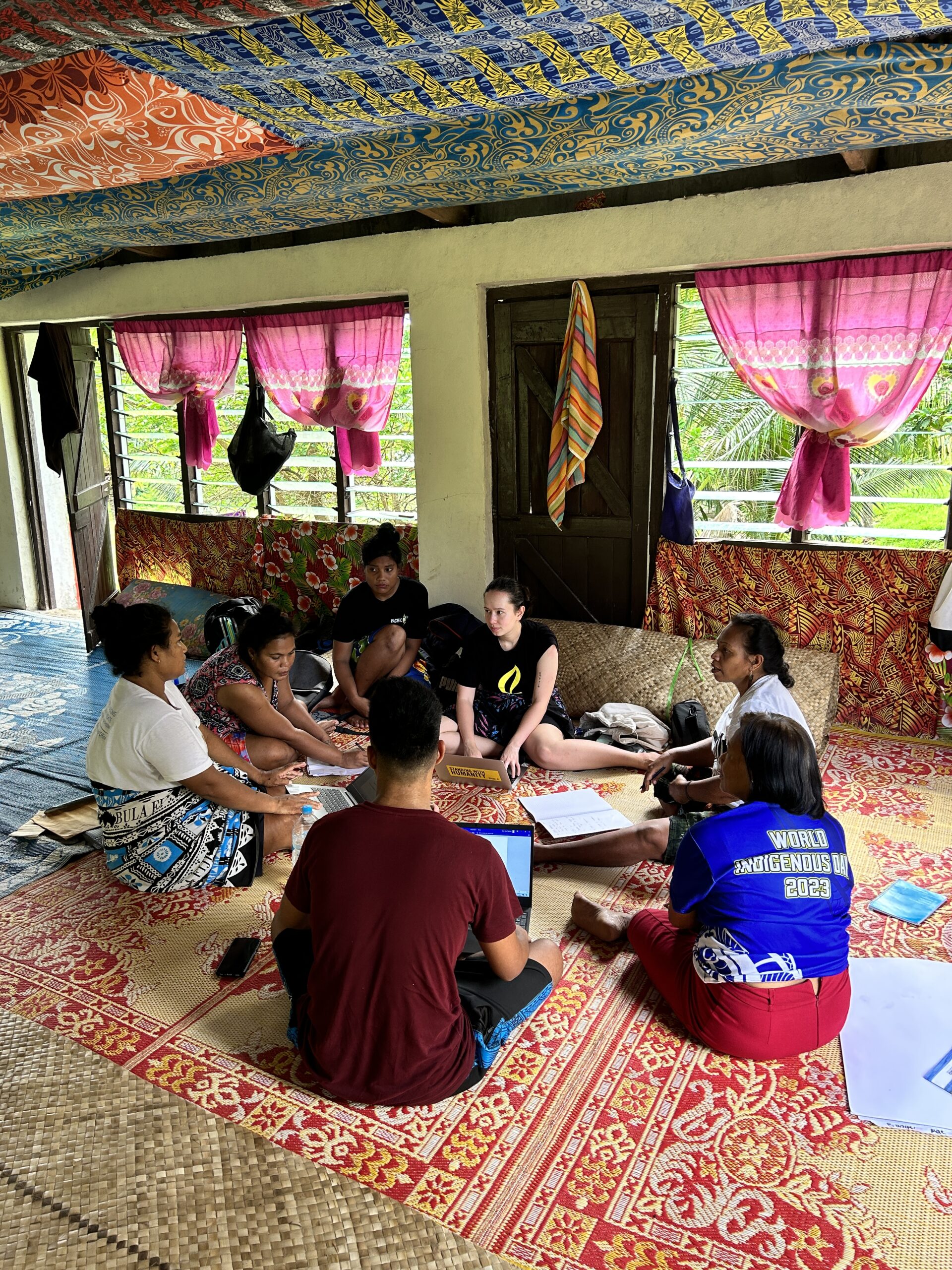Long-standing partners gather for capacity building to set up an exciting 2024

The Banaban Human Rights Defenders Network (BHRDN) invited long-standing partner, the International Center for Advocactes Against Discrimination (ICAAD) for a 4-day capacity building training. The training was held in the Uma Methodist Church Hall Teitinraoi Hall on Rabi Island on 15-18 January 2024. Trainers, Erin Thomas (Director, Change Facilitator) and Katja Phutaraksa Neef (Artivist and Intern) facilitated workshops on legal literacy regarding the Kiribati Constitution and Banaban Settlement Act, citizenship rights for Banabans, and a range of advocacy skills including lobbying, media training, advocacy strategy, and graphic design.
The training also launched the Banaban Citizenship Handbook which is a resource that was created by ICAAD and their pro bono law firm partner Clifford Chance. The citizenship status of Banabans in different parts of the world is fraught with inequities resulting from displacement and colonialism. This Handbook is intended to clarify the status quo, while advocates work to ensure Banabans’ human rights in both Kiribati and Fiji are protected. Following the training, copies of the Handbook will be distributed among communities.
The Banaban people on Rabi Island are victims of displacement and forced relocation from Banaba/ Ocean Island due to the ravaging of phosphate for much of the 20th century. The history and stories of displacement and disposession are shared in the virtual exhibit Justice for Rabi: The Story of Banaba.
BHRDN is a community-based organization located in Rabi Island in Fiji. Established in 2020, the network is comprised of passionate community members working for justice, the development of their communities, and the safeguarding of Banabans’ rights everywhere.
As a part of the training, the Banaban Human Rights Defenders discussed their way forward which includes engaging youth and initiating an awareness-raising campaign so that Banabans are aware of their citizenship rights and the legislation that safeguards their rights more broadly. The way forward also includes advocacy for reparations from the countries which profited from the phosphate mining, namely New Zealand, Australia, and the UK. As interested parties attempt to re-mine Banaba, human rights defenders stand staunchly in defense of their ancestral land and oppose destructive industry.
“It’s about time for those countries to repay the loss and damage for what they have done years ago. We need assistance with youth education, immigration pathways to the countries who have prospered from our phosphate, and critical community and economic development on Rabi and on Banaba – especially food, water, and healthcare.” – Moera

To achieve reparations and to increase development on Rabi and for Banaba, the Rabi Council of Leaders (RCL) which is the designated governing body with the full mandate of the people must be reinstated. It has been 11 years since the last RCL was disbanded, and Rabi is currently being governed by an appointed Rabi Administrator (RA) which is only permitted for an interim period of three years under the Banaban Settlement Act of 1970.

While long overdue, the Fiji government can reinstate the RCL by hosting elections. The council is critical for achieving reparations as well as having a transparent and accountable government on Rabi. Having elected representatives on Rabi is also important for Banaba given that the Kiribati Constitution provides for the RCL to nominate a representative from Rabi to stand alongside the Banaban representative in the Kiribati Parliament.
The Banaban Human Rights Defenders are fighting for this generation and all future generations to ensure that decisions are made that safeguard not only their ancestral lands but also their rights on Rabi and in the diaspora. By learning from history and building the skillsets to be strong advocates, the network is well-positioned for a successful year ahead of promoting and protecting Banaban human rights.
